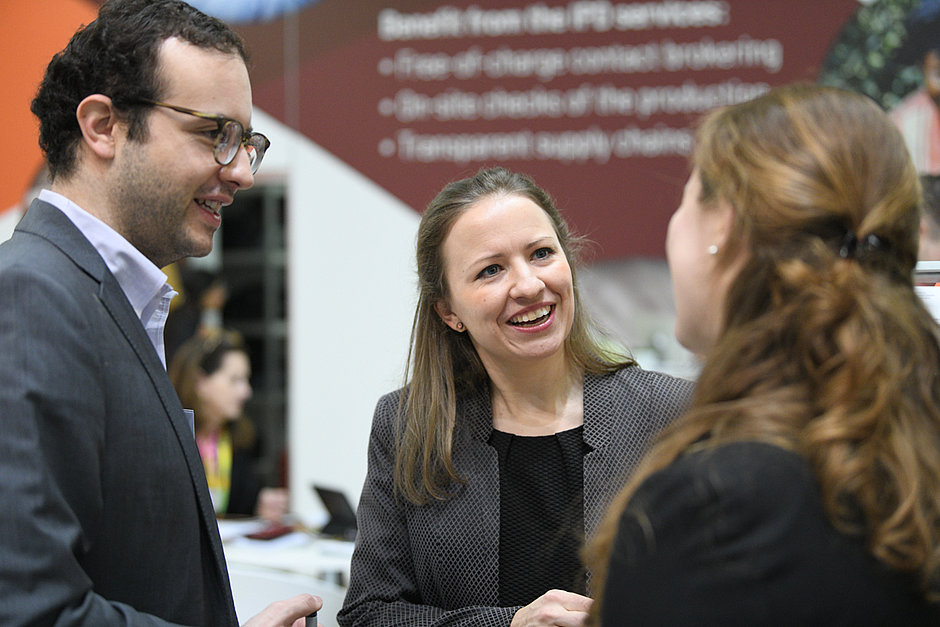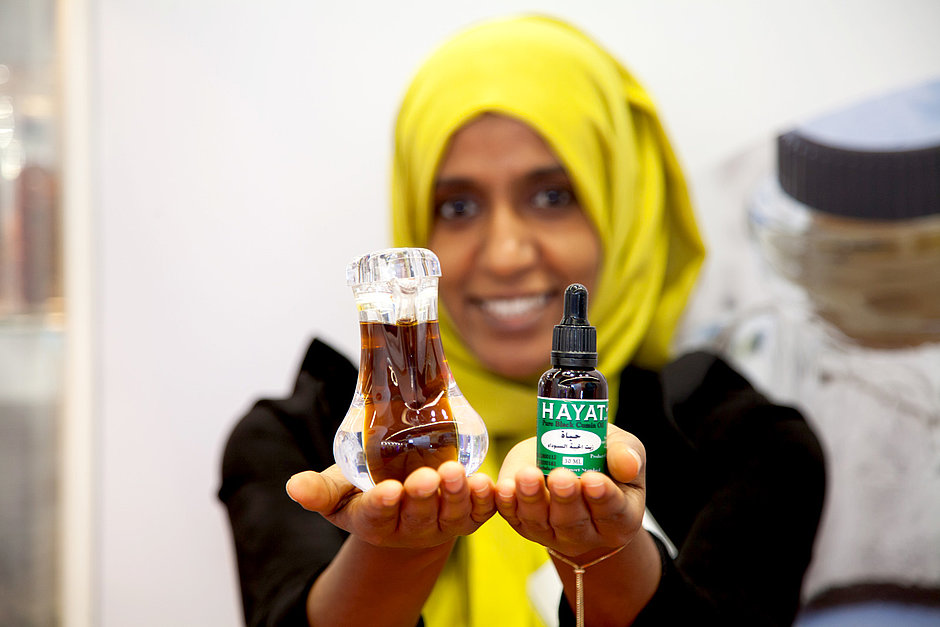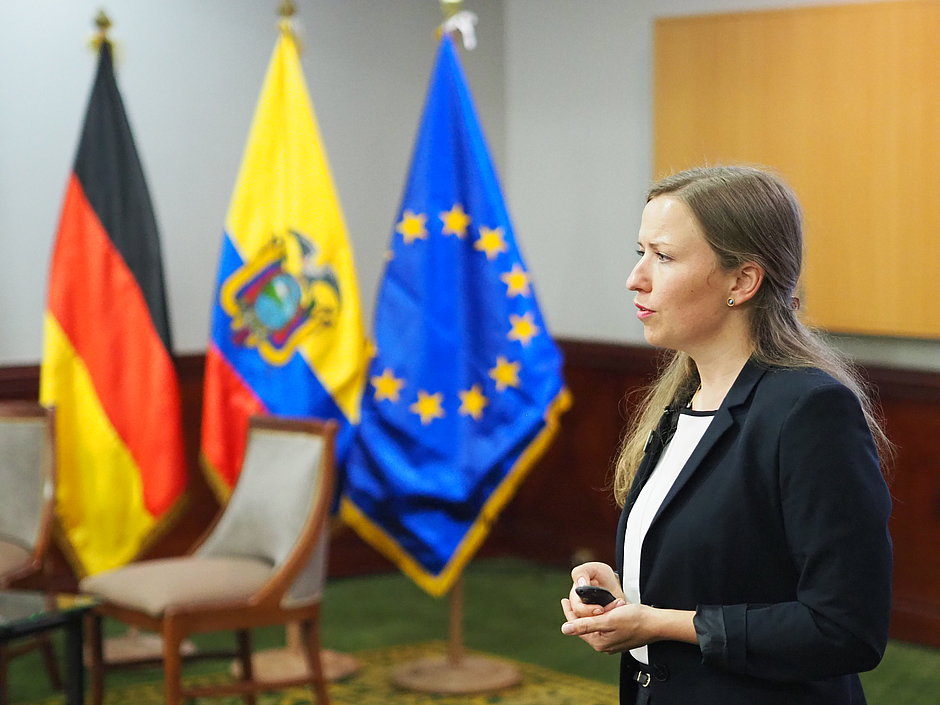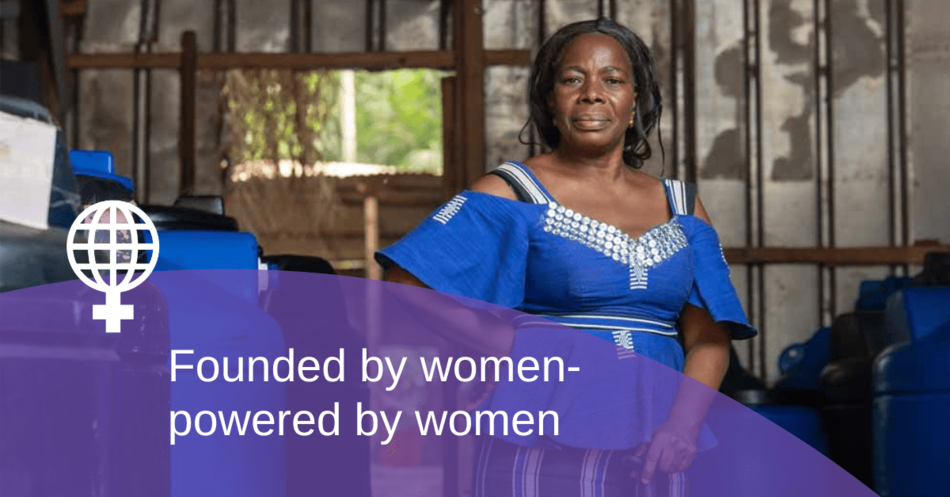Promoting the economic participation of women
On International Women's Day on 8 March, attention is drawn worldwide to women's rights and gender equality. Women's Day was first celebrated in 1911 and its appeal is as relevant today as it was over 100 years ago.
A year ago, the German Federal Ministry for Economic Cooperation and Development (BMZ) presented its strategy for feminist development policy. The aim is to guarantee women the same rights and access to resources as men and to work towards ensuring that women are equally represented and involved in political and economic decision-making processes.
As a member of the BMZ's development policy network "Partners in Transformation - Business & Development Network", the Import Promotion Desk supports this reorientation and contributes to the economic participation of women.

Tabea Mack, team leader of the Sourcing and Markets department at the IPD in Bonn, explains the IPD's commitment to promoting women and outlines its plans to strengthen equal participation in economic life.
Ms Mack, how does the work of the IPD contribute to the goal of equal participation?
Our approach is demand-oriented trade promotion. By creating long-term trade relationships between companies in developing and emerging countries and European companies, we create a win-win situation for both partners.
Exporters benefit from trade by finding buyers for their products or services in Europe, and European companies benefit by getting contact with reliable suppliers who fulfil their demands and requirements.
These sustainable business relationships not only promote economic development in our partner countries, but also social security. Increased demand means increased production and the creation of new jobs in the formal sector. We pay particular attention to ensuring that new employment opportunities are also created for women. We also want female employees to have equal opportunities for career advancement.
Foreign trade promotion therefore has great potential to promote the participation of all people in the global economic system and thus effectively tackle existing structural inequalities.
»Foreign trade promotion has great potential to promote the participation of all people in the global economic system and thus effectively tackle existing structural inequalities.«
There are many companies in the IPD programme that were founded by women, that are managed by teams of women or whose employees are largely women. How important is the advancement of women in the selection process so far?
Yes, the promotion of women plays a majorrole in the IPD programme. Many companies in the IPD programme are already led by women, particularly in the IPD sectors where a large proportion of employees are women, such as natural ingredients, fresh produce and cut flowers, as well as in the tourism sector. As many women traditionally work in these sectors, there is an opportunity to focus specifically on promoting women, for example in management positions.
IPD is also active in sectors that tend to be dominated by men, such as the IT sector. Our aim is to overcome gender-specific barriers, empower women and create equal opportunities in these sectors too, and we want to increase the proportion of women-led companies in our programme in the future. We are planning a target against which we want to be measured.
Can you give us an example of a women-led company that has impressed you personally?

I was impressed by Zenith Mohammed Ahmed - the founder of Hayat Cosmo Industry in Ethiopia, whom I got to know during my work as an expert for Sourcing + Markets.
Zenith comes from a family with a long tradition of knowledge about medicinal plants. It was therefore only natural for her to found a company that produces essential and fatty oils. Despite the challenges of a difficult political and economic environment, she has driven the commercialisation of her products with a great deal of commitment and real woman power.
We in the IPD team have actively supported Zenith's expansion into Europe, advising the company on the introduction of HACCP, accompanying them to European trade fairs and putting them in touch with European buyers.
A particular highlight of our collaboration was the first business deal with a European cosmetics company. I was very pleased about that.
On the one hand, this success story emphasises the remarkable entrepreneurial achievement of Zenith Mohammed Ahmed, who has taken her company to a new level by entering the export business. At the same time, this story also shows the positive impact of IPD support on women-led businesses.
»Our aim is to raise awareness of unequal structures and at the same time to take more measures to promote greater equality.«
Are there special IPD activities, such as training courses, that support the advancement of women?
Capacity building makes up a large part of our services for export companies. This includes training on import regulations, certifications and quality standards. We place a particular focus on corporate social responsibility (CSR) training, which explains social and environmental market requirements.
In these CSR training courses, we highlight the importance of social standards that benefit all employees, but particularly marginalised groups. In doing so, we are tackling the root causes of inequality and addressing structures that favour inequality, such as pay, occupational health and safety and healthcare. We are currently actively revising our training programme and sharpening this aspect specifically to promote women and other marginalised groups.
How does the IPD intend to intensify its commitment in future?

Our aim is to raise awareness of unequal structures and, at the same time, to take more action to promote greater equality. We want to increase the number of women-led companies in the IPD programme so that they can successfully expand their export business to Europe. In this way, female entrepreneurs gain not only economic power, but usually also social and political power through their local involvement. They show other women what is possible: they are role models for self-determination and participation.
At the same time, we will expand our capacity building programme, which includes special training for women on soft skills, negotiation techniques and leadership. Our aim is for the export companies in our programme to implement CSR strategies, including a gender strategy. At the same time, we want to ensure that the proportion of female managers increases.
Another starting point is the IPD's strong network in its partner countries. Our regional offices work with the Business Support Organisations (BSOs), i.e. export promotion organisations, on a daily basis. The BSOs have a direct line to many small and medium-sized enterprises. . We can use this great leverage to empower women.
A recent survey of BSOs and companies in the IPD programme shows that there is great interest in the training courses for employees and member companies. Many companies are aware of their social responsibility and would like to have more dialogue and specific coaching sessions. As IPD, we want to create a platform for this exchange and are planning networking events and a mentoring programme for female managers. We will develop these programmes together with our local partners.
In the coming years, we will make our contribution to the economic success of women-led companies and the promotion of women's economic participation in general.
So we have a lot planned and are looking forward to working with the entrepreneurs and our partners.
»We achieve empowerment by supporting women-owned businesses. This gives women entrepreneurs economic, social and political power. In doing so, they show other women what is possible.«
IPD business women exemplify the potential of empowerment.
Founded by women - powered by women!
In the IPD programme, there are many companies that are founded and run by women. And not only that. Many companies also employ a large number or even the majority of women. Economic participation promotes growth - also and especially in developing and emerging countries. Women's rights are not only strengthened, but economic growth in the countries is also promoted through empowerment.
